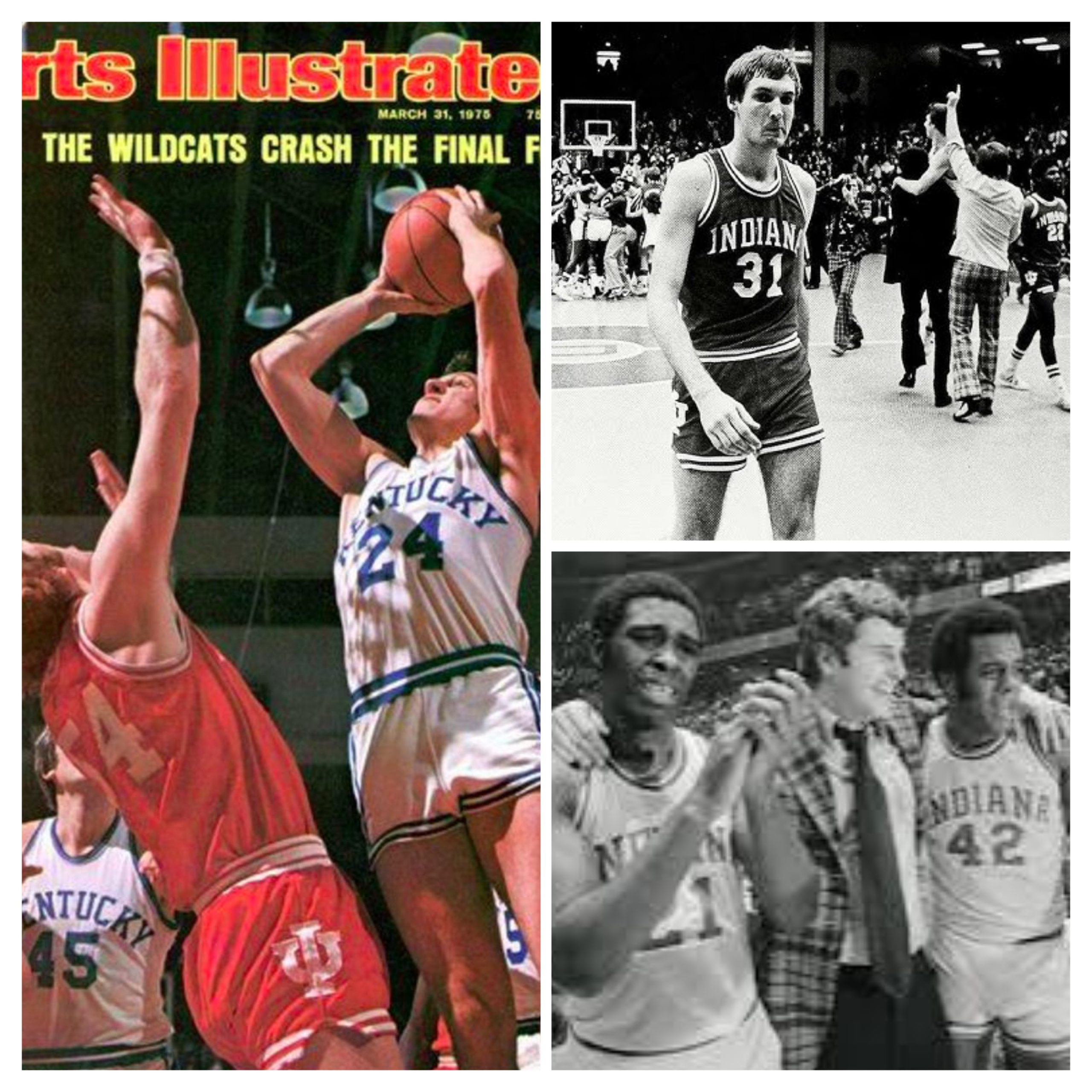“The Game That Still Haunts Bloomington: Indiana’s Perfect Season Shattered in ’75”
In the long and storied history of Indiana Hoosiers basketball, few moments sting quite like the night of March 22, 1975. It wasn’t just a loss. It was the unraveling of a dream — a season that had flirted with perfection was stopped just short of the Final Four. And the team that did it? None other than Kentucky, a bitter rival with a history as rich as Indiana’s and a score to settle.

On that night in Dayton, Ohio, Indiana fell to Kentucky, 92–90, in the NCAA Mideast Regional Final — a game that was, at once, a masterpiece of college basketball drama and a painful, permanent scar in the hearts of Hoosier faithful.
A Dream Season, Derailed
Heading into the 1975 NCAA Tournament, Indiana was unstoppable. Undefeated at 31-0, the Hoosiers were ranked No. 1 in the country and widely considered the best team in college basketball. Under the fiery leadership of Coach Bob Knight, and fueled by stars like Scott May, Quinn Buckner, and Kent Benson, this team seemed destined for the national title.
But fate had other plans. In a regular-season game against Purdue, Scott May — Indiana’s leading scorer and All-American forward — broke his left arm, sidelining him during the tournament. Though he played sparingly against Kentucky, it was clear he wasn’t the same.
And Kentucky was ready.
More Than Just a Game

There was bad blood leading into the Elite Eight showdown. Earlier that season, in a December matchup, Indiana had crushed Kentucky 98–74 in Bloomington. The game was so heated that it turned physical — with Bob Knight slapping Kentucky coach Joe B. Hall on the back of the head during a dispute. The slap didn’t go unnoticed, and neither did the humiliation.
Kentucky remembered. And on that March evening in Dayton, they came with something to prove.
The game quickly turned into a basketball classic — a seesaw battle marked by big shots, missed chances, and unrelenting intensity. Kevin Grevey, Kentucky’s senior guard, put on a legendary performance, scoring 33 points. Indiana fought tooth and nail, keeping pace despite May’s limited minutes and obvious pain.
The final minutes were a blur of clutch baskets and free throws. With the score tied in the dying seconds, Kentucky sank the game-winning points, sending Indiana home and ending what might have been the greatest season in Hoosier history.
The Greatest Team That Didn’t Win

To this day, many basketball historians and Hoosier fans believe that the 1975 Indiana team was better than the 1976 team that went undefeated and won it all. That’s not to take anything away from the championship squad — but 1975 had more depth, more experience, and arguably more swagger.
If Scott May had been healthy, most agree Indiana would have run the table, winning both the regional final and the national championship. Instead, what they got was heartbreak — a “what-if” that has never fully faded.
Bob Knight himself has said that 1975 was “the best team I ever coached.” Coming from a man who led three national title runs, that’s saying everything.
A Rivalry Rekindled, A Wound Left Open
The loss to Kentucky added gasoline to an already fierce rivalry. For Indiana fans, the pain was not just about the final score, but who delivered the blow. Kentucky — the team they had humiliated months earlier — had returned the favor in the cruelest way possible.
That game wasn’t just a regional final. It was a collision of pride, pain, and legacy. And it would linger.
Indiana would get redemption the very next year, finishing the 1975–76 season undefeated and national champions, the last men’s team in NCAA history to do so. But for those who lived through 1975 — the players, the coaches, and the fans — it remains the one that got away.
Nearly Perfect, Painfully Forgotten
There are no banners for the 1975 Hoosiers. No commemorative nights. No rings. Just memories — bittersweet and stubborn.
And maybe that’s why it still haunts us. Not because they failed, but because they were so close to perfect — and because, even after all these years, we know they were good enough to win it all.
Sometimes, greatness doesn’t get the storybook ending. Sometimes, it ends in silence — or in Dayton.
But true fans never forget. And neither should history.




















